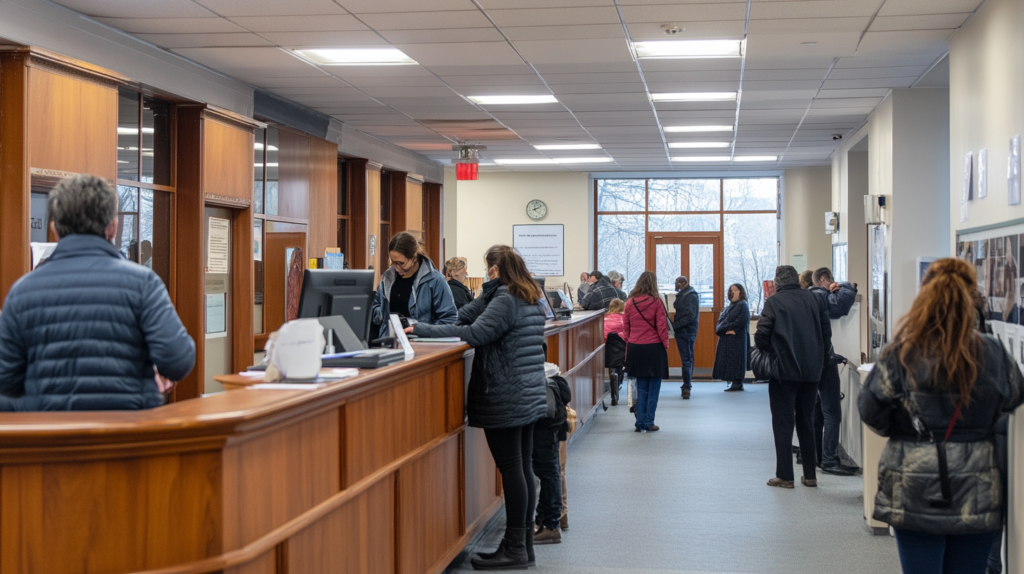Connecticut Labor Laws You Need to Know to Stay Out of Trouble

Understanding Connecticut labor laws is crucial for both employers and employees to ensure a fair, productive, and compliant workplace. From minimum wage requirements to workplace safety standards, the regulations cover a wide array of topics that affect day-to-day employment practices in the state. This guide dives deep into everything you need to know about Connecticut employment laws, ensuring that you stay informed and compliant.
Table of Contents
- Minimum Wage in Connecticut
- Overtime Regulations
- Meal and Rest Break Laws
- Workplace Safety Regulations
- Discrimination Laws in Connecticut
- Workers’ Compensation in Connecticut
- Paid Sick Leave Laws
- Family and Medical Leave Act (FMLA) in Connecticut
Minimum Wage in Connecticut
Connecticut labor laws dictate specific requirements regarding minimum wages to ensure fair pay for all workers. Employers must be mindful of these laws to remain compliant and avoid penalties.
Current Minimum Wage Rate
The minimum wage in Connecticut is currently set at $15.00 per hour as of June 2023. This rate aims to provide a livable wage for employees amidst rising costs of living in the state. Employers must adhere to this minimum, with few exceptions.
Annual Increases
Connecticut has a scheduled system for annual minimum wage increases based on economic factors and inflation. These adjustments protect workers from losing purchasing power. Employers should stay updated with these changes to avoid compliance issues.
Exceptions to the Minimum Wage
Certain employees, such as tipped workers, may be subject to different minimum wage requirements. For instance, employers can pay tipped employees a base wage of $6.38 per hour, provided that tips bring their total earnings to at least the state minimum wage. Youth workers may also have different pay standards.
Overtime Regulations
Overtime regulations are a significant part of Connecticut employment laws, ensuring that employees receive adequate compensation for extended hours worked beyond the standard workweek.
Eligibility for Overtime Pay
Under Connecticut labor laws, employees who work more than 40 hours in a workweek receive overtime pay. Overtime is typically calculated at one and a half times the employee’s regular hourly rate. This rule ensures that employees receive fair compensation for their additional efforts.
Exempt vs. Non-Exempt Employees
Not all employees are entitled to overtime pay. Exempt employees, such as salaried professionals and certain executives, are not eligible for overtime. Non-exempt employees, however, must be compensated according to state regulations.
Tracking Hours Worked
Employers must accurately track the hours worked by non-exempt employees. Failure to do so can lead to wage disputes and penalties for wage theft. Utilizing time-tracking software is a practical solution to stay compliant.
Meal and Rest Break Laws
Connecticut labor regulations also include requirements for meal and rest breaks to ensure the well-being of employees during their workday.
Meal Break Requirements
Employees working more than seven and a half consecutive hours are entitled to a 30-minute unpaid meal break. Employers must provide this break at least halfway through the shift, ensuring that workers have time to rest and refuel.
Rest Breaks and Shorter Shifts
While there is no requirement for paid rest breaks, many employers provide short breaks to boost productivity and maintain employee satisfaction. Offering at least two short breaks during a typical eight-hour shift can improve overall morale.
Exemptions to Break Requirements
Some roles, such as those in healthcare or emergency services, may have exemptions from standard meal break laws due to the nature of the work. Employers in these sectors must ensure that alternate arrangements provide rest periods where possible.
Workplace Safety Regulations
Workplace safety is a crucial aspect of Connecticut labor laws, designed to protect employees from injuries and hazards in the workplace.
Connecticut Department of Labor Standards
The Connecticut Department of Labor (CTDOL) establishes guidelines that all employers must follow to maintain a safe workplace. These guidelines include safety equipment, hazard communication, and employee training on proper safety procedures.
Occupational Safety and Health Act (OSHA)
Connecticut follows federal OSHA regulations, which require employers to eliminate serious hazards, conduct regular safety audits, and maintain proper safety records. Non-compliance leads to significant fines and penalties.
Reporting Unsafe Conditions
Employees have the right to report unsafe working conditions without fear of retaliation. The CTDOL encourages workers to report hazards and ensures that employers address these concerns promptly.
Discrimination Laws in Connecticut
Discrimination in the workplace is prohibited under Connecticut labor laws, and understanding these protections is essential for fostering an inclusive environment.
Protected Classes
Connecticut’s discrimination laws protect employees based on race, gender, age, religion, disability, and several other categories. Employers must provide equal opportunities to all employees, regardless of their protected status.
Filing a Discrimination Complaint
If an employee believes they have faced discrimination, they can file a complaint with the Connecticut Commission on Human Rights and Opportunities (CHRO). This agency investigates the claim and takes appropriate action if violations are found.
Employer Obligations to Prevent Discrimination
Employers must provide regular anti-discrimination training to their staff and establish clear policies that outline unacceptable behavior. A zero-tolerance policy towards discrimination helps promote a fair work environment.
Workers’ Compensation in Connecticut
Workers’ compensation laws ensure that employees injured on the job receive proper medical care and wage replacement during their recovery.
Eligibility for Workers’ Compensation
Most Connecticut employees receive coverage under workers’ compensation, including part-time and full-time workers. This insurance provides benefits for medical costs and lost wages if an injury occurs while performing work duties.
Steps to File a Claim
After sustaining a work-related injury, employees must notify their employer immediately and seek medical attention. A workers’ compensation claim must be filed, detailing the injury and associated costs to receive benefits.
Employer Responsibilities
Employers must have workers’ compensation insurance and report any workplace injuries promptly. Failure to comply leads to penalties and increased liability.
Paid Sick Leave Laws
Paid sick leave is an important aspect of Connecticut employment laws, ensuring employees can take necessary time off when ill without fear of losing income.
Accrual of Paid Sick Leave
Employees in Connecticut accrue one hour of paid sick leave for every 40 hours worked. This allows workers to take time off for their own health or to care for a family member without risking financial stability.
Usage of Sick Leave
Sick leave can be used for physical or mental health needs, including doctor visits. Employers cannot retaliate against employees for using accrued sick time, as this is protected under state law.
Employer Documentation Requirements
Employers may require reasonable documentation if an employee takes more than three consecutive days of sick leave. This policy ensures that the system is not abused while maintaining fair access for employees in need.
Family and Medical Leave Act (FMLA) in Connecticut
The Family and Medical Leave Act (FMLA) provides eligible employees with unpaid, job-protected leave for specific family and medical reasons.
Eligibility Criteria
Employees must have worked for their employer for at least 12 months and have logged at least 1,250 hours during that time to be eligible for FMLA. This law allows employees to take time off to care for family members or for serious personal health issues.
Duration of Leave
Eligible employees may take up to 12 weeks of leave in a 12-month period. The leave can be taken for various reasons, such as the birth of a child, adoption, or serious health conditions of a family member.
Job Protection During FMLA Leave
Employers must guarantee that employees taking FMLA leave return to their previous position or an equivalent one, with the same pay and benefits. This protection ensures that employees do not face job insecurity while attending to critical family matters.
Deskcove: Your Partner in Labor Law Compliance
Staying compliant with Connecticut labor laws can be challenging, especially with the constantly changing regulations. Deskcove offers tailored solutions that help businesses manage compliance, employee records, and payroll processing seamlessly. By automating these tasks, Deskcove ensures your company meets all Connecticut employment law requirements efficiently and effectively.
Frequently Asked Questions (FAQ)
What is the current minimum wage in Connecticut?
The minimum wage in Connecticut is $15.00 per hour as of June 2023. It may increase annually based on inflation and economic factors.
Are employees entitled to paid rest breaks in Connecticut?
Connecticut labor laws do not mandate paid rest breaks, but employees working more than seven and a half hours are entitled to a 30-minute unpaid meal break.
Who is covered under Connecticut’s workers’ compensation laws?
Most employees, including full-time and part-time workers, receive coverage under Connecticut workers’ compensation laws, which provide benefits for work-related injuries and illnesses.
What is FMLA, and who qualifies for it in Connecticut?
The Family and Medical Leave Act (FMLA) provides eligible employees with up to 12 weeks of unpaid, job-protected leave for family and medical reasons. To qualify, an employee must have worked for the employer for at least 12 months and 1,250 hours.

